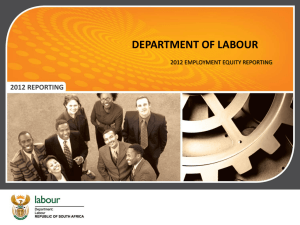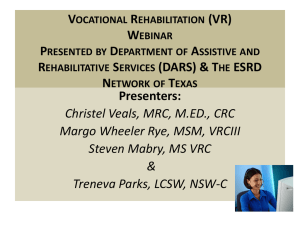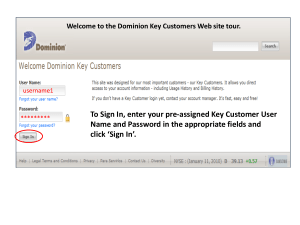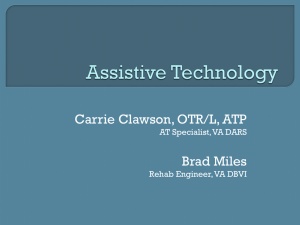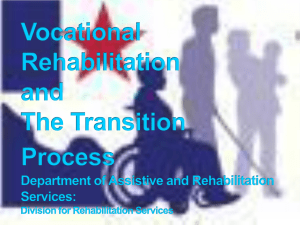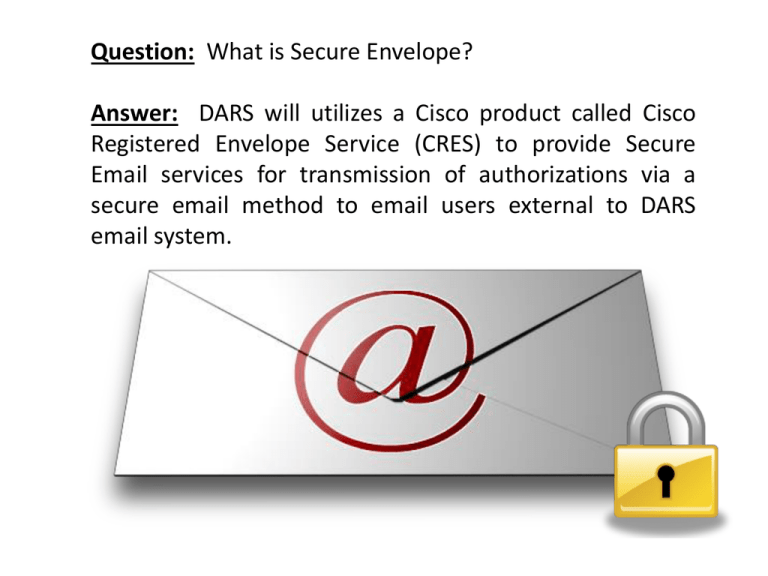
Question: What is Secure Envelope?
Answer: DARS will utilizes a Cisco product called Cisco
Registered Envelope Service (CRES) to provide Secure
Email services for transmission of authorizations via a
secure email method to email users external to DARS
email system.
Step-by-Step Guide to Opening Your
First Envelope
This section provides step-by-step instructions for opening a Registered Envelope
for the first time. The steps and supporting graphics demonstrate the typical
scenario for a first-time recipient. Some of the steps may vary, depending on the
particular circumstances.
Note: These steps apply to first-time recipients only. After you enroll with Cisco
Registered Envelope Service, you can use your password to open envelopes
from any sender.
Step One: Save the securedoc.html File Attachment to
Your Hard Drive
When you receive a Registered Envelope notification message, you need to
open the securedoc.html file attachment to view the Registered Envelope.
For best results, double-click the securedoc.html file and save it to your
hard drive before opening it, as shown here.
Note: The dialog box for saving an attachment may look different,
depending on your email program, or if you use a web mail site, such as
Yahoo! Mail, Gmail, or Hotmail.
Step Two: Open the securedoc.html File in a Web
Browser
Open the securedoc.html file in a web browser, such as Microsoft Internet
Explorer or Mozilla Firefox. The Registered Envelope is displayed.
Step Three: Click
the Register
Button to Enroll
with the Service
Click the Register
button on the
Registered Envelope
to enroll with Cisco
Registered Envelope
Service.
The New User
Registration page is
displayed.
Complete the online registration form and click the Register button at the bottom
of the page to create a user account. There is no charge to enroll with and use
the service.
After you complete the form and click Register, the following confirmation page is
displayed.
You may need to set up more than one user account if you receive Registered
Envelopes at multiple email addresses. You need a separate user account for each
address.
Step Four: Activate Your Cisco Registered Envelope Service
Account
Check your email inbox for an activation message from the service. The following
example shows a typical activation message.
In the activation email message,
click the link to activate your
user account.
The following confirmation page is displayed.
Step Five: View the Registered Envelope Again and Enter
Your Password
View the Registered Envelope. The Register button is no longer displayed on the
envelope. An Open button appears in its place, as shown here.
Enter the password for your Cisco Registered Envelope Service user account,
and click Open.
The decrypted message is displayed in the browser window.
After you open a Registered Envelope, you can click Reply to send a Secure Reply
message or click Forward to send a Secure Forward message. When you send a Secure
Reply or Secure Forward message, the recipient receives a Registered Envelope
containing the encrypted message.
Secure Envelope FAQs
Question: In a nutshell how does the process work?
Answer: Generally speaking, a DARS employee
initiates a secure email. This tells CRES and the
recipient you are sending a message to, that the
email contains confidential information and thus
should be encrypted. The DARS email will then
encrypt the email and send it to the CRES email
servers on the Internet.
Note: There will be no confidential information in
the subject line of your email.
Question: Are there any limitations on the number of
DARS employees who can send Secure Email?
Answer: No. All DARS field staff will be sending
information in a secure format.
Question: Are there any restrictions on what can
actually be sent or disclosed through Secure Email?
Answer: Yes. All PHI, PII & Sensitive Data will be
sent via Secure Email.
Question: Is there a Secure Email pre-registration
component available to business partners?
Answer: No. It is not required to pre-register prior to
receiving Secure Email.
Question: When DARS users send a Secure Email, is
the Secure Email protected or excluded from Virginia
Freedom of Information Act (FOIA) requests?
Answer: No. Secure Email does not fall in the same
classifications as Governor’s working papers, Records
of the Virginia Department of Emergency
Management (DEM), or Applications to the Virginia
Department of Health Professionals (DHP).
Question: If two DARS employees send a Secure
Email to the same person at another agency or
company, will the receiver have to register twice?
Answer: No. As long as the receiver of the Secure
Email message has the same email address registered
in the CRES Secure Email system, they will only need
to be registered once to receive any secured
messages addressed to them.
Question: If the receiver saves a Secure Email in
their Secure Mailbox, will the Secure Email still
automatically delete after 30 days?
Answer: No. According to CRES communications, the
Secure Email stays on the CRES server for one year.
The receiver must copy or save the email and/or
attachment to their local storage area, i.e., their
c:drive or somewhere on their local network if they
want to retain for a longer period.
Question: Is there a re-registration prompt (email
notification) sent to a registrant if they have not used
the DARS Secure Email system for one year.
Answer: No. The registrant will not receive any
notification warning.
Question: How do I know that my recipient read the
message that I sent them?
Answer: When the recipient reads the secure email
message that was sent, the DARS sender will get a
message from CRES. This message lets the DARS
sender know that the recipient has read the secure
message.
Question: When I receive a Secure Email with an
attachment, after I put in my password I see the
browser says "Loading Envelope Tools..." What do I
do?
Answer: There are two choices:
Wait a few minutes and the item and attachment will
finally load.
OR
Click on the link that says “If you experience problems
opening this message, try to Open Online” and
bypass the downloading delay.
Question: If multiple receivers get a Secure Email
from DARS, will all those copied or cc’d on the Secure
Email receive the original message and also be able to
reply to everyone that was cc’d?
Answer: Yes. They will need to register before they
can view the original message.
Question: Once the receiver gets the Secure Email,
can the receiver forward it to someone within their
organization or a different email address?
Answer: Yes. The receiver of the email message can
reply to the original message from the DARS sender
or forward the message to any other mail recipient.
Question: If a Secure Email is received by an
individual, what prevents the receiver from cutting
and pasting the content of the message to another
Email and forwarding it to another individual?
Answer: Similar to regular email, Secure Email does
not prevent anyone from cutting and pasting the
content of the message.
Question: What if the secure email recipient forgets
their password?
Answer: If the secure email recipient forgets their
password when they attempt to login, there are
several ways to retrieve their password.
The “Personal Security Phrase” that shows on the
CRES logon screen is the password hint the users
added during registration.
If the user still cannot remember their password, they
can click on the “Forgot Password?” link to start the
process of securely resetting their password.
Question: What are the external user account
properties ?
Answer: There are 5 settings:
Password Policy: Minimum of 6 characters with at least
one number.
Account Lockout: User accounts are disabled after 5
unsuccessful logon attempts.
Inactivity Policy: Users are logged out of CRES after 10
minutes of inactivity in the secure web browser.
Message Expiration: User email messages on CRES
expire after one year.
User Account Status: User accounts are on CRES are
good for one year. After one year of inactivity, the
account will be auto-deleted with no warnings.
Question: When the recipient requests a new
password, how long do they have to receive/change
it?
Answer: When a recipient requests a new password,
they will receive the temporary new password sent to
their registered email address. They will have a 72hour window in which to use this link to change their
temporary password.
Question: What if my secure email recipient still has difficulty
or cannot login?
Answer: If your Secure Email recipient has difficulty with CRES
or cannot logon. The recipient must contact the originator
(meaning the sender) of the Secure Email message at DARS
and the Secure Email originator must send an email to VCCC at
VCCC@vita.virginia.gov or call them at 1-866-637-8482. When
they create the VCCC ticket, ask that the ticket be assigned to
the Ironport team for assistance.
Be sure to include the name of your recipient who is having a
problem and their email address and telephone number. The
reason for this is to ensure that the VCCC only responds to
valid recipient password problems, and only you, as the Secure
Email originator, would know if the intended recipient is valid.
The VCCC will work with the recipient to fix/resolve their
password issue.


